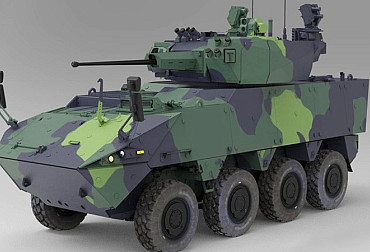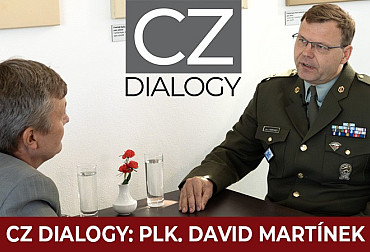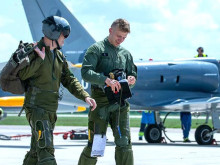Colonel Robert Speychal: We are preparing a major amendment to the Veterans Act
The recent anniversary of the end of World War II commemorates the fates of war heroes, including still-living war veterans. Particularly in recent times, there has also been talk in the public sphere about modern war veterans who served, for example, in the countries of the former Yugoslavia, Iraq and Afghanistan. War veterans are dealt with within the Ministry of Defence by the Department for Care of War Veterans and War Graves of the Ministry of Defence, which has been headed by Colonel Robert Speychal since 2022. He himself has two generations of war veterans in his family and can therefore put his personal experience to good use in his work. We invited Colonel Speychal to the next episode of our CZ DIALOGUES programme.
Video: Interview with Colonel Robert Speychal, Director of the Department of Care for War Veterans and War Graves of the Ministry of Defence of the Czech Republic / CZ DEFENCE
We were interested in how a soldier actually becomes a veteran, because a soldier does not automatically become a veteran upon completion of his service, but must, according to Act 170/2002 Coll., apply for a certificate. According to Colonel Speychal, the exact number of war veterans is not known, although, of course, according to archival documents, the number of veterans could be traced. However, the Department does keep a record of those who apply. "There are 16 435 of them, and they are in different age categories - from ninety years old to twenty-five years old. In addition to that, we are also registering Second World War veterans. Unfortunately, there are only 72 of them left. When I enlisted in November 2022, there were 123. That historical memory and that direct connection is going away," says the director of the Department of Veterans and War Graves Care, noting that of the living WWII veterans, these are the youngest, who didn't become involved until the end of the war.
To understand the care of war veterans, it is necessary to perceive the fact that it does not only mean caring for World War II veterans, when food, spa care and holiday allowance are provided. "When someone is 95 years old, they almost don't go to the spa anymore. Meals still might, but unfortunately we don't have a delivery service yet. If he doesn't have a canteen somewhere nearby, he's not going to go there, and he's probably not going on vacation anymore either," Colonel Speychal points out the need for change in veterans' care. Ironically, Speychal says, these three basic benefits are often not available to younger veterans who are either far away or no longer in good health.
"We have modern war veterans who served in UNPROFOR units but then were no longer soldiers. They served for six months or a year and then worked in regular civilian jobs," Robert Speychal describes. In practice, this means that these veterans usually work in blue-collar or lower-paid jobs, which does not allow them to benefit from the army's assistance, for example, when they cannot go on holiday or spa stays because they cannot afford travel expenses. The allowance is up to CZK 25 000. The review in the veterans' care system is thus very topical.
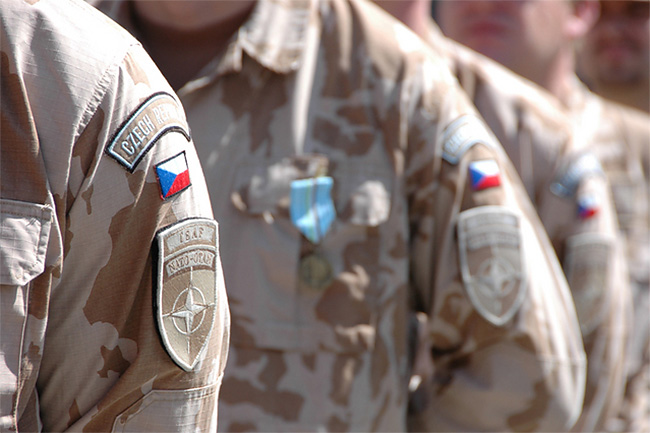
A powerful moment for war veterans is personal encounters. There are several associations in the Czech Republic that organize reunions of war veterans. "Let's name the biggest ones - the Czechoslovak Legionary Community and the Union of War Veterans. But there are also newer smaller associations that are very active, such as the Veterans' Association in Vysočina, and we would like to support them," Colonel Speychal said in an interview.
Existing grant programs can provide, among other things, space for three community centers that can serve other brand-new veterans' associations. "We're putting together a program where we're going to educate them so they don't have to worry, we're happy to help them with that. They can start a society, we can then provide them with a grant and we are also going to have a lot of exciting opportunities," adds the Director of the Department of Veterans and War Graves Care.
The War Veterans Support Agency is also helping with the active involvement of war veterans. The Agency's task is to focus its attention on war veterans in all regions of the Czech Republic. "Small contact centres will be set up so that veterans will have a fixed place. Now we are launching the project together with a recruitment agency. In some regions, a recruitment centre will serve together with a contact centre for war veterans. This year it will be set up in Liberec. We hope that it will also be established in the Zlín region, perhaps in Pardubice. Next year, a large community centre will be established in Tábor, which has been planned for a long time," Colonel Speychal describes the efforts to improve work with war veterans. The idea is that, regardless of when these centres are established in particular parts of the country, there will already be active contact. "We need to set up care for modern veterans that is customary in Western countries. Therefore, we need to get our people into the counties immediately. And it doesn't matter if there's a contact center or if there's a chair in an office. It's the people that are important," says Colonel Speychal.
When it comes to communicating with veterans, it's also about establishing trust within the communication. "That's basic, most modern veterans weren't used to that. It's up to us now to build trust. We launched the system in early January. We've had horrific cases piling up on our staff that no one has dealt with in years. The veterans learned that there was someone from the Department of Defense who was interested in them and it helped," Col. Speychal credits the improvement in working with veterans.
Inspiration in providing care for war veterans can be found in Poland, the Netherlands and, in some ways, the UK, where there are a large number of charities. For example, the Netherlands generally has a good social system, and so there has been a link with the Netherlands Veterans Institute. "That's an interesting project that could be here one day. The Dutch Ministry of Defence, together with six veterans' societies, has set up one organisation called the Netherlands Veterans Institute, which it funds. They have built a special centre near The Hague for this, thanks to donations. There is an online centre, online help, psychological help and so on. But at the same time, the Dutch army also has about 250 social workers. These are people who already catch problems at the lowest level in the military units so that they don't develop further," says Colonel Speychal.
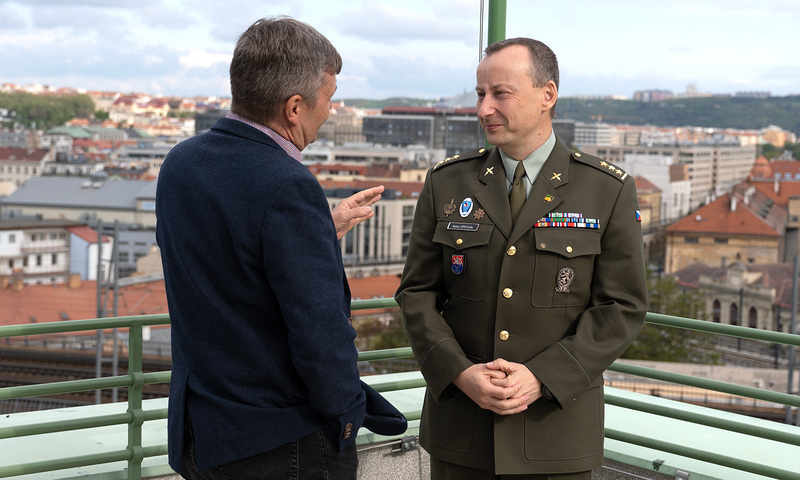
As we mentioned in the introduction, the initiator of entry among the veterans must be the soldier himself who makes the application. We wondered whether this step should not be substituted by the state, which in this case would mean legislative changes. "We have started to do it in a rather positive way. We've started inviting veterans to various events and meetings where we have forms and they fill it out right away. Furthermore, we are preparing a rather substantial amendment to the War Veterans Act," Colonel Speychal says in an interview, revealing some of the paradoxes that need to be addressed. "For example, if you were killed in a mission, you can't be a war veteran because you have to apply personally. We also want to expand the care options because unfortunately the benefits are explicitly listed in the law, and we can't use the 25 million crowns for anything else," explains the director of the Department of War Veterans and War Graves Care.
It is the implementation details that should be transferred to the decree, which the Ministry of Defence can change depending on how the funds used will meet the needs of veterans' care. An important change, then, is broader targeted assistance that is not tied to any additional regulations. "For example, we currently don't even know who has died because we don't have access to the central population registry. The Ministry of Defence has now been given permission, but only for mobilisation, and only up to the age of 60. And of course we need wider access, so that is one of the reasons why we want to change the law," explains Colonel Speychal.
Colonel Robert Speychal, the director of the Department of Care for War Veterans and War Graves of the Ministry of Defence, has two war veterans among his ancestors. His grandfather was first an Austro-Hungarian soldier, then a Russian legionnaire, and his father was a member of the resistance group Zpravodajská Brigáda, which was an anti-German intelligence organisation operating in and around Prague during the Protectorate of Bohemia and Moravia in 1940-1945. If you want to learn more, listen to the full interview at the beginning of this article.















